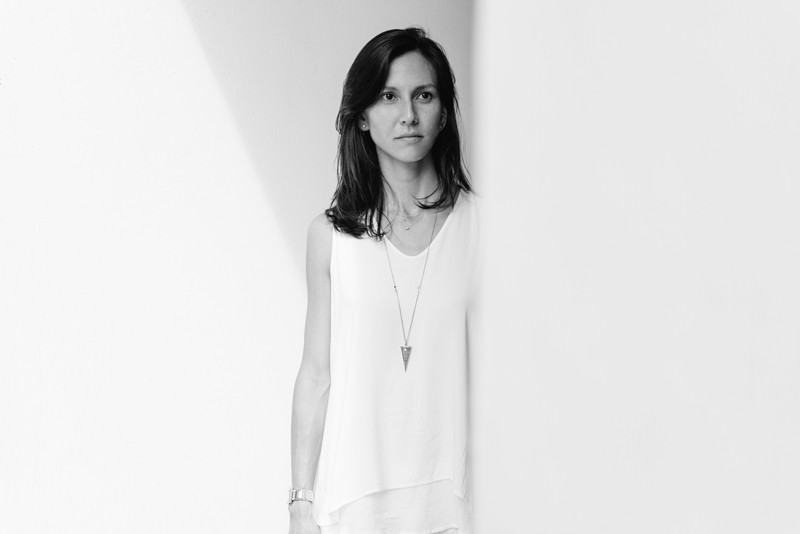"There’s this notion that if you are in a non-profit, you must either be rich, in-between jobs, young and idealistic, or old, retired and in need of someplace to go—that it’s just a transitory role. People don’t see value in what we’re doing.” Zhang Tingjun is a straight shooter. At 35, she is also the youngest-ever executive director of Mercy Relief, Singapore’s leading disaster relief agency, and the first woman in the role. Her answer to my question on the hardest aspect of working in the NGO scene in Singapore, surprises me with its frank simplicity. “Our employees are trained in issues like climate change, disaster resilience, and impact analysis—because there’s a science to it and skills involved—the decisions that they make can be life-or-death,” she adds, to put any misconceptions to rest. “But some of their parents still ask when they’re going to stop volunteering and find a real job.” The former national netball player unconsciously punctuates her sentences with the wringing and flexing of her long fingers and slightly knobby hands. She’s animated and expressive, adeptly varying the tone and pitch of her speech to emphasise her points. The overall charm of her candour coupled with a dry sense of humour, almost makes you forget that she possesses the single-minded drive and purpose of a professional athlete. “Given that school wasn’t my forte, a lot of discovering myself was done on the netball court. I mountain bike nowadays, and it isn’t so much about the exercise but about pushing myself to be better,” Tingjun says. “I want to focus on going as fast and as hard as I can. I’m still chasing the guys whom I ride with, but I'm gonna get better in time.” Mercy Relief’s simple yet cheerfully modern, open-plan office set at the foot of a HDB block in Toa Payoh, is clear evidence of her go-getting nature. Just over a year ago, the place was a dim, airless and somewhat-decrepit space with peeling floors and a heavily shuttered frontage. Newly appointed and fresh off a (then) 6-year stint at The Chain Reaction Project—a non-profit that she co-founded in August 2009—Tingjun initiated a complete renovation and renewal of the office, becoming Mercy Relief’s ambitious catalyst for change and progress. Besides overseeing a benchmarking of salaries and a review of its human resource policies to improve on employee welfare, the ex-Channel NewsAsia reporter has also raised Mercy Relief’s accountability and transparency with better documentation and simpler reporting processes. She has logged a record high of 220 hours in staff training to build on the existing wealth of experience and expertise held by Mercy Relief’s staff, from years of working on the ground. Today, those in the neighbourhood are treated to a welcoming view of Mercy Relief’s employees at their desks or in meetings. The newly fitted, wide and large glass panes reveal the inner workings of their operations to passersby and double up as whiteboards—covered in hasty, colourful scribbles. A sense of hopeful purpose permeates the office and the physical renewal of the space seems like the ideal metaphor for the growth and reinvigoration of Mercy Relief, under Tingjun’s helmsmanship.
Conversations with Zhang Tingjun
TEO REN FENG: Did you ever imagine doing what you do now?
ZHANG TINGJUN: No, I wanted to be a helicopter paramedic. I really, really did. I think I still do… [laughs]
REN FENG: You can still be one, it isn’t too far a leap.
TINGJUN: Yeah, which is a funny thing right? Somehow indirectly, I have ended up in the same field. I contemplated being in a role like a police officer or firefighter too.
REN FENG: What fuels your conviction that you can make a difference?
TINGJUN: I used to think that making a difference had to be something that was very, very big. Essentially, you had to do things on a certain scale and affect a huge number of people like “save the world”—in order to make a true difference. It can be overwhelming. You’re in paralysis: where do you even start? But I realised that it can simply be about the individual after meeting Rosaria Martins da Cruz, who’s the director of Hiam Health, which The Chain Reaction Project (TCRP) worked with in Timor Leste. She was passionate and fiery and she knew just what she was doing in the fight against malnutrition, from being on the ground. And it struck me that backing even just one person and making a difference in their life, can go on to have an impact in many others’. You don’t have to be the only one working: it’s about being strategic with whom you back and how to drive for change collectively.
Sometimes just focusing on one village first, is enough. We don’t need to save a whole country straightaway.
REN FENG: They say change begins with just one.
TINGJUN: Sometimes just focusing on one village first, is enough. We don’t need to save a whole country straightaway. You have to have goals that are realistic enough to keep you going—and are attainable so you don’t give up.
REN FENG: You did a lot of housekeeping, achieved a 100% staff retention rate and even gave 2 promotions after your first year joining Mercy Relief. As a new, incoming leader, how did you rally a team that had just undergone severe rightsizing?
TINGJUN: It was difficult. Very difficult. At TCRP, which I started with Alex [Toh], everything was possible. I was running it with her, and both of us together built whatever ‘sandcastles in the air’ that we wanted. Sometimes we would have very big ideas that would seem completely impossible, but we’d still go ahead with them and achieve maybe just 78% of our goal. Because that’s 78% more than if we hadn’t tried at all, right? Here, no matter what idea, even if it was a ‘small sandcastle’ that needed just 30% effort, they’d be like, “Ummm, yeah… cannot.” Or if I said, “Hey, can you check if this is possible?” The response would be: “Oh yeah, sure. But it’ll never happen.” It was very, very demoralising and difficult for me to stay motivated too. But change happened in the little, everyday efforts. Achieving the low-hanging fruit and garnering small successes like getting the office renovated and our new furniture sponsored, did help to build the team’s faith and morale. Now they’re the ones that come up with suggestions on what we can do, and I think to myself: Yes! Now we’re talking! They’re excited to drive for change because they know that it is possible to make things happen.
REN FENG: What are your goals for the Mercy Relief team in the next 3 to 5 years?
TINGJUN: We were talking about it the other day and we want Mercy Relief to be the leading NGO in Singapore, like the “Harvard” of charities.
REN FENG: Aren’t you already?
TINGJUN: We are working towards that, but what does it mean to be the “leading charity”? We used Harvard as a target, but what we actually want to be is like Uber. Staying relevant and tech-savvy, studying trends that go beyond our sector, so that when we make an impact, it is the most effective and smart way of affecting change. A lot of that comes down to partnerships and seeking answers and solutions that are non-traditional.
REN FENG: What barriers stand in your way?
TINGJUN: Funding. If you don’t have funding settled, you can’t do much. You’ll constantly be coming back to the same issues and obstacles. Donors want every cent to go to the ground. Nobody wants to pay salaries or cover the rent and training courses. It’s a huge challenge to find people to actually fund Mercy Relief, the organisation, so that we can scale and get better at what we do.
REN FENG: Why should money go to Mercy Relief instead of directly aiding a disaster victim?
TINGJUN: Even with a donation of $10, people get concerned about the fact that an organisation takes 5% for overheads. They would choose to go with the charity that takes less, or where 100% of the donation goes to the ground. It doesn’t matter to them how they are using it. Yes, it’s accountable, like how we can easily hand out aid (e.g. rice), and at the end say, ‘We touched 3 million beneficiaries.’ Alternatively, we can conduct an assessment to discover where the needs are truly critical, map out how we’re going to get to the hardest, most remote village that nobody else is reaching, and realise that it may not actually be food that they need the most. We might actually tackle the issue of climate-smart agriculture, because more than what we’re feeding them today, is how they’re going to feed themselves in the upcoming years. So that’s the difference in what you pay for, when you invest in an organisation versus ad-hoc charity acts. This aspect of donor education is a challenge.
What we sell is essentially the human spirit.
REN FENG: Does a lot of fundraising come from hobnobbing and guanxi-style relationship-building?
TINGJUN: I’ve been trying to create a structure around the fundraising process, because in the first year it was really about personal contacts and networks. I don’t want to become someone who makes people think, “Please, no!” when they see me coming. [laughs] In the same way that I regard those we help with respect and dignity, I want others to see us as partners in charity. We’re not lesser—it’s proper and structured, and when I come to you there is a real proposition on the table that will be win-win. The other party is equally excited about how they can use their business or money to make a significant difference.
REN FENG: Do you think communication is your greatest strength?
TINGJUN: It’s also being very “real” and at times, quite vulnerable too. When I do try and strike a partnership, I think the reason that it works oftentimes isn’t necessarily because I communicated my message well, but because… by being open and honest and exposing my own weaknesses—it strikes a chord with those who also genuinely want to make a difference. We meet on a personal level and it’s no longer about Company X anymore, but the person behind Company X, who spearheads the efforts. We don’t work with foundations or corporations. We work with people and individuals, since what we sell is essentially the human spirit—that’s more important than just “communication”.
I know what it’s like to not be accepted, and to feel frustrated about not having a voice.
REN FENG: Do you believe in the middle-child syndrome?
TINGJUN: Yes, I do. I’m definitely a middle-child. My eldest sister is super organised, super responsible, and she started in one job and spent her entire career in Events. That’s her—she looks after everybody. My third sister is the sociable, happy one, and my youngest sister is the baby of the family. I was the one who was always angry and fought with everyone when we were growing up. Now, I’ve evolved into becoming the negotiator and the peacekeeper, which I am—both at home and at work.
REN FENG: What were you so angry about?
TINGJUN: This might be an extreme case of the middle-child syndrome: I always felt unheard and blamed for things. Among us, if anything happened, it couldn’t possibly be super-responsible child number 1, or super-happy child number 3. So, it would be me: number 2, the troublemaker. It was partly that, and also just not fitting in at school. I didn’t have any friends, which might also have been because I was so angry. I can see now how I was potentially at fault too.
REN FENG: School wasn’t easy for you. I read that you once even jumped out of a school bus window because you didn’t want to go so badly.
TINGJUN: I went to a Chinese-educated primary school where people would tell me things like, “You can’t play in the playground. You’re not Chinese.” And while my sisters would have probably just said, “Huh? Oh, whatever”, I responded by going, “No!” and got into fistfights because of that, which led to the principal’s office. [laughs] My mother used to drag me to the school gates in my pyjamas. I’d be screaming, crying and throwing a full tantrum, but also get embarrassed so I’d change in the car and go to school in tears. I think that’s where my whole defending the underdog thing comes from… I know what it’s like to not be accepted, and to feel frustrated about not having a voice. That erupted in the form of anger and if I had stayed where I was, I’d probably be out on the streets today, fighting in a gang. Actually, one of my teachers told my mother that I was a natural leader, but bordering on the gang leader sort. [laughs] I hope it’s being channelled into a more productive form of leadership now.
REN FENG: Do you ever still feel like an outsider?
TINGJUN: Ummm... sneaky question here…
REN FENG: I think we all feel that way sometimes.
TINGJUN: I care less now. It doesn’t upset or make me angry anymore because I have found my own niche and groove; the things that make me happy and drive me. I don’t mind being an outsider anymore.
REN FENG: Is there anything you wish people understood better about you?
TINGJUN: I think it’s more important that people understand the things that drive me—care about those matters and support them—rather than me, as a person.
I’m actually very proud to be Singaporean and it’s funny how in many phases and facets of my life, I have always carried the Singapore flag.
REN FENG: You’ve mentioned meeting key figures at crossroads in your journey. Women like Rosaria [Martins da Cruz], Cecilia Flores-Oebanda, the Filipino freedom fighter and even the Nepalese quake victim who cemented your decision to join Mercy Relief. Do you believe in Fate?
TINGJUN: But is it fate or would I have seen those same things in somebody else that I’d met? Would they have represented things differently from what I’ve learnt and seen in them? People tell me that I’ve been very lucky, but what they don’t see or know, is the amount of hard work involved too. If you are not prepared when the opportunity presents itself, you will miss that window. You might think, ‘Oh, unlucky.’ But is it really being unlucky, or just unprepared? In the same way, I think… [long pause] Fate is ultimately what you make of it. Sometimes, something or someone can be placed in your path, but if you don’t take the time to recognise, appreciate or explore a little deeper… then… you might just miss it.
REN FENG: Where in the world are you happiest?
TINGJUN: [points to the ground] Right here, in Singapore. I can be happy anywhere I am in the world, but I know that I will always come home. I’m actually very proud to be Singaporean and it’s funny how in many phases and facets of my life, I have always carried the Singapore flag: as a netballer or part of Mercy Relief. And as cliché as it sounds, it’s important that Singapore is doing its part to support the countries and people in the region that have also helped to build our nation. We are in a very blessed position where we don’t get hit by natural disasters, so we should do more. This fortune comes with responsibility.
REN FENG: With great power comes great responsibility?
TINGJUN: [laughs] Yeah. We might not be Spiderman… but it’s not so different.
****
Edited by Wy-Lene Yap





